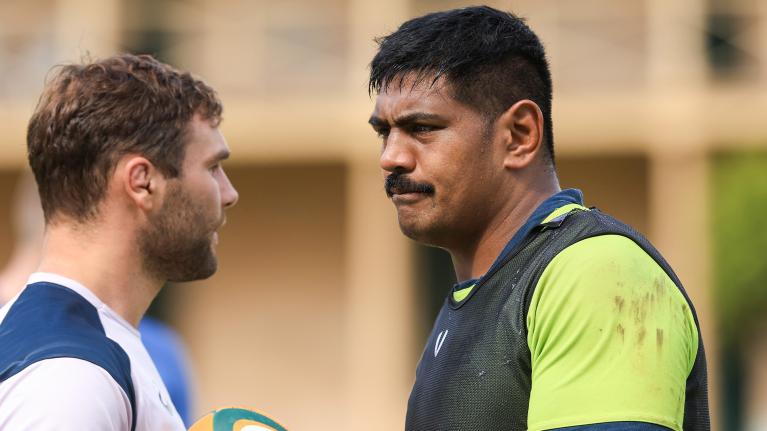'The only guy that has actually won anything': Jones finds gold in Wallabies captaincy

There was no shortage of shocks in Eddie Jones' Wallabies World Cup squad announcement, with notable names missing and young guns included. But the most unexpected call for one pundit was the captaincy.
Australia's captaincy has been thrown around the squad numerous times already despite Jones being in charge for just four games. James Slipper, Michael Hooper, Allan Alaalatoa and Tate McDermott have all shared the responsibility as Eddie Jones experimented with his lineup.
But the coach looked outside that group entirely when naming his captain for the Rugby World Cup, opting for La Rochelle beast Will Skelton to lead the charge in France.
Skelton is well-established in the European club scene as one of the world's finest locks but the 31-year-old has just 28 international caps to his name, with the majority of those being played in 2014-16.
The offer of leading the team surprised even the man himself, it wasn't an offer that Skelton accepted straight away but as soon as it was confirmed, his Wallaby teammates agreed it made sense for the team.
Pundits have shared a similar reaction, stating their surprise but ultimately supporting the call.
"The biggest thing that was a surprise for me was Will Skelton being named as captain," Former Maori All Black Bryn Hall told the Aotearoa Rugby Pod.
"Not even really talked about or having given captaincy a go in that environment, but for Eddie (Jones) doing that, Will's probably the only guy in that team that has actually won anything. And that's just being honest.
"Will Skelton's won with La Rochelle, he's obviously played in big European Championship games and has an understanding of what it looks like to win and by all accounts, he's actually really good with the younger guys from what I've heard from in camp. He's able to really connect with those younger boys and bring them in together and so I think he's definitely more of an actions person.
"I don't think anything will change around how he delivers or who he is as a person, it's just more so the vice captains, your Nic White, your Tate McDermott, your James Slipper. They'll be leading more of the messaging and the vocalness around that captaincy."
Skelton was indeed instrumental in La Rochelle's recent Champions Cup title runs, giving the lock invaluable experience that his Wallaby teammates simply don't have.
All but four of the Wallabies 33-man World Cup squad play in Super Rugby Pacific meaning outside of the Covid-forced Super Rugby AU, the players have not tasted success in a professional competition.
Former All Black James Parsons agreed the experience of winning was priceless and absolutely necessary in any leader but especially in a World Cup campaign. He added that the nature of captaincy has changed over the years and Skelton's experience in those Champions Cup finals runs would have given him the self-awareness to know his limitations, a key ingredient to being a great leader.
Perhaps most importantly, the giant lock has been in great form since returning to the Wallabies environment and will lead by example when the team get to France in under one month's time.
Latest Comments
I love this guy, so pleased he’s staying with the Canes
Go to commentsPerfect.
Now bring back Mo’unga in July 2026.
Go to comments